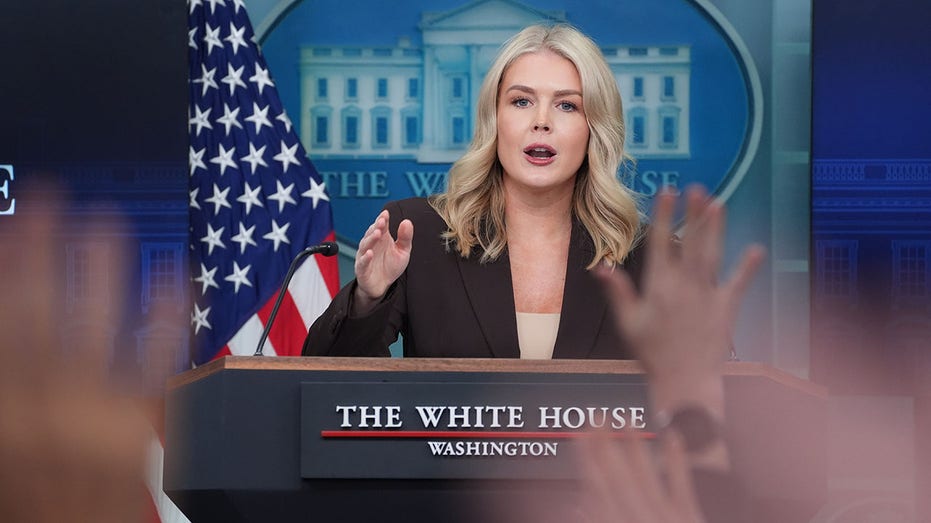Politics
White House Restricts Press Access, Raising Concerns Over Transparency

The White House has implemented new restrictions on journalist access to key areas within the West Wing, drawing significant criticism from media organizations. Effective immediately, journalists are no longer allowed to enter Room 140, known as “Upper Press,” without prior approval. This area houses the offices of senior communications officials, including Press Secretary Karoline Leavitt. The National Security Council stated that the changes are intended to protect sensitive materials and enhance national security.
According to a memorandum released by the National Security Council, the policy aims to maintain coordination between the National Security Council staff and White House communications personnel. Previously, credentialed journalists could access Room 140 on short notice for interviews with senior officials. The new policy restricts this access, requiring reporters to schedule appointments to meet with authorized staff members.
The White House Correspondents’ Association has voiced strong opposition to the restrictions. Weijia Jiang, a CBS News reporter and current president of the association, emphasized that such limitations hinder the ability of the press to question officials, promote transparency, and hold the government accountable. “The White House Correspondents’ Association unequivocally opposes any effort to limit journalists from areas within the communications operations of the White House that have long been open for newsgathering,” Jiang stated.
White House Communications Director Steven Cheung defended the decision by citing incidents where reporters allegedly recorded video and audio without permission in restricted areas. Cheung noted that some journalists have wandered into forbidden spaces and eavesdropped on private meetings, compromising the confidentiality of government discussions. “Cabinet Secretaries routinely come into our office for private meetings, only to be ambushed by reporters waiting outside our doors,” he remarked in a post on social media platform X.
The recent changes come in the wake of a similar restriction introduced by the Clinton administration in 1993, which was later retracted following backlash from the media. Additionally, this policy aligns with new press regulations announced by the Pentagon, which require news outlets to accept stringent press guidelines or risk losing their media credentials. These guidelines could categorize journalists as security risks if they seek unapproved disclosures, even of unclassified information.
At least 30 news organizations, including Fox News, have refused to comply with the Pentagon’s new media restrictions, claiming that they threaten press freedom and hinder independent reporting. Earlier this year, the Trump administration also removed major news agencies, including Reuters, The Associated Press, and Bloomberg News, from the permanent pool of reporters covering the presidency, limiting their access to sporadic inclusion.
As the landscape of press access evolves, concerns over transparency and the ability of the media to function independently remain at the forefront of discussions surrounding government communication policies. The implications of these changes will likely continue to unfold in the coming weeks.
-

 Lifestyle3 months ago
Lifestyle3 months agoLibraries Challenge Rising E-Book Costs Amid Growing Demand
-

 Sports3 months ago
Sports3 months agoTyreek Hill Responds to Tua Tagovailoa’s Comments on Team Dynamics
-

 Sports3 months ago
Sports3 months agoLiverpool Secures Agreement to Sign Young Striker Will Wright
-

 Lifestyle3 months ago
Lifestyle3 months agoSave Your Split Tomatoes: Expert Tips for Gardeners
-

 Lifestyle3 months ago
Lifestyle3 months agoPrincess Beatrice’s Daughter Athena Joins Siblings at London Parade
-

 World3 months ago
World3 months agoWinter Storms Lash New South Wales with Snow, Flood Risks
-

 Science3 months ago
Science3 months agoTrump Administration Moves to Repeal Key Climate Regulation
-

 Business3 months ago
Business3 months agoSoFi Technologies Shares Slip 2% Following Insider Stock Sale
-

 Science2 months ago
Science2 months agoSan Francisco Hosts Unique Contest to Identify “Performative Males”
-

 Science3 months ago
Science3 months agoNew Tool Reveals Link Between Horse Coat Condition and Parasites
-

 Sports3 months ago
Sports3 months agoElon Musk Sculpture Travels From Utah to Yosemite National Park
-

 Science3 months ago
Science3 months agoNew Study Confirms Humans Transported Stonehenge Bluestones









